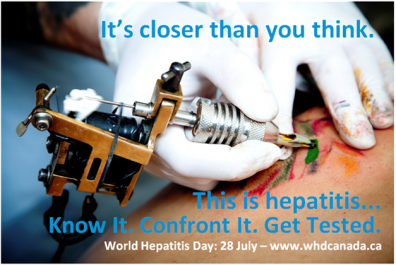
Hepatitis C is an infection of the liver caused by the hepatitis C virus.Hepatitis C is a virus which is carried in the bloodstream to the liver. It can then affect and damage your liver. It can cause inflammation (swelling) and fibrosis (scarring) of the liver tissue, and sometimes significant liver damage. It may subsequently lead to cancer of the liver and possible death.
Many people do not realize they have been infected with the virus because they may not have any symptoms, or they may have flu-like symptoms that can easily be mistaken for another illness.
Vaccine
There is currently no vaccine to prevent hepatitis C.
Further Information
- Hepatitis C - Could I be at risk?
- Hepatitis C positive - Information fact sheet for those living in Northern Ireland
- What is Hepatitis C - advise from British Liver Trust
- What do all those BIG words mean?

Summary
- It is a blood borne virus.
- It affects the liver.
- It can be spread through sharing injecting equipment.
- Never share toothbrushes, razors or other personal items.
- It can survive in blood outside the body.
- 1 in 4 infected will clear the virus themselves.
- There is no vaccine available
- There is treatment available which can help.
- You can catch it more than once.
- Current Treatment For hepatitis C
NOTE:
Please read on and if you think that you could be infected, then please see your doctor or go to your local Sexual health/Genitourinary Medicine (GUM) clinic and request a test to screen for hepatitis C.
